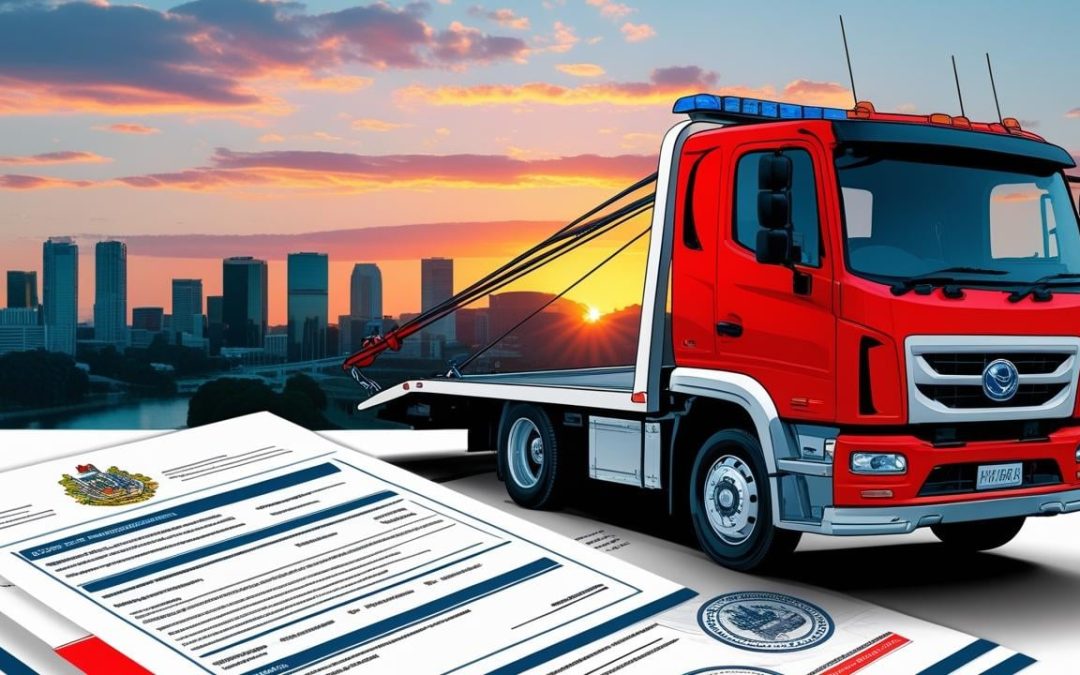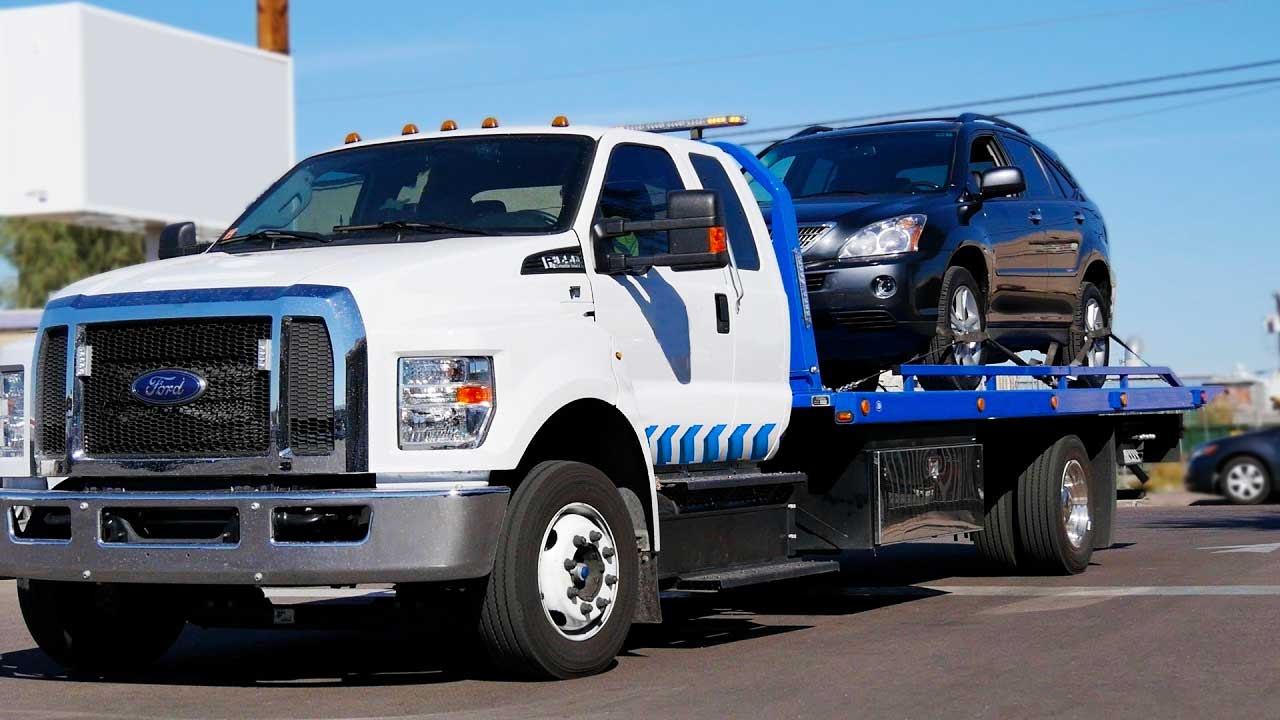Top 10 Requirements for a Towing Company
Discover the top 10 essential requirements every towing company must meet to ensure safety, legality, and customer satisfaction.

Understanding the requirements for a towing company is crucial for anyone looking to venture into this industry. Ensuring safety, legality, and customer satisfaction are paramount for the success and longevity of a towing business. In this article, we will explore the top 10 essential requirements that every towing company must meet to operate efficiently and responsibly.
Requirements for a Towing Company
To thrive in the towing industry, meeting certain prerequisites is non-negotiable. These requirements not only help in adhering to legal standards but also play a significant role in safeguarding your business and customers. We delve into what it takes to set up a towing business that's poised for success.
List of Top Choices
- Business Plan
- Business License and Permits
- Proper Insurance
- Tow Trucks and Equipment
- Commercial Driver’s License (CDL)
- Clean Driving Record
- Physical Fitness and Training
- 24/7 Availability
- Excellent Customer Service
- Financial Preparedness
Business Plan
- Outlines the company's mission and the services offered.
- Details about the target market and competitive analysis.
- Includes a detailed financial plan for growth and funding.
A comprehensive business plan is your first step towards establishing a thriving towing business. It acts as a roadmap, guiding your company's decisions and strategies. Beyond serving as a blueprint for your business's operations, a solid business plan is often required by lenders and investors. It should clearly outline what services you plan to offer, such as roadside assistance or vehicle recovery, who your customers will be, and how you plan to beat the competition. Moreover, a detailed financial analysis will help you understand the funding you need to get your business off the ground and keep it running.
Business License and Permits

- Necessary for legal operation in your city or county.
- Varies by location, check with local and state government.
- May include an impound lot license for storing vehicles.
Operating a towing business requires more than just a tow truck; it necessitates various licenses and permits. These are vital for ensuring your business meets local and state regulations. Starting with a general business license and including specific permits for towing services, the requirements can differ significantly depending on your location. Failure to secure the proper licenses and permits can lead to hefty fines or even the closure of your business. Therefore, it’s crucial to research and comply with all regulatory demands specific to your area.
Proper Insurance
- Covers bodily injury, property damage, and vehicle damage.
- Includes general liability, commercial auto, and on-hook insurance.
- Essential for protecting your business and your customers.
Insurance is the backbone of a tow truck operator's safety net. Given the high risks associated with towing vehicles, having comprehensive coverage is not optional—it’s crucial. From general liability that protects against bodily injuries and property damage claims, to on-hook insurance that covers vehicles while they're being towed, each type of insurance serves to safeguard your business against potential financial disasters. Additionally, if you employ others, workers' compensation is a must-have to cover employee-related injuries. Investing in proper insurance reassures your customers and protects your business from significant financial and legal trouble.
Tow Trucks and Equipment
- At least one tow truck is required, variety beneficial.
- Must have all equipment in good working order.
- Equipment must meet safety standards.
The kind of tow truck and equipment you have can set your towing business apart. Whether it’s light-duty tasks like towing cars or more heavy-duty jobs involving larger vehicles, having the right equipment is crucial. This includes maintaining your equipment to ensure it meets all safety standards, which is vital both for the safety of your operators and the vehicles you tow. Remember, the versatility and reliability of your fleet can significantly impact the efficiency of your operations and your company’s reputation.
Commercial Driver’s License (CDL)
- Required in most states for tow truck operators.
- Ensures drivers have necessary skills for heavy-duty vehicles.
- Varies by state; check local requirements.
Operating a tow truck isn’t like driving a regular vehicle, which is why a Commercial Driver's License (CDL) is often a requisite. This license ensures that your drivers have undergone the necessary training to safely operate large, heavy vehicles. The requirements for obtaining a CDL can vary from state to state, so it’s important to understand the specific needs in your area. Ensuring that all your drivers have a valid CDL not only complies with regulations but also instills confidence in your customers that their vehicles are in capable hands.
Clean Driving Record

- Essential for operators and employees.
- Affects insurance rates and licensing.
- Sign of reliability to customers.
Having a clean driving record is more than just a legal requirement for tow truck operators and their employees—it's a crucial aspect of your business’s reputation. A history of accidents, traffic violations, or DUIs not only makes it harder to obtain necessary licenses and affordable insurance but also raises red flags for potential customers. Maintaining and verifying clean driving records for all drivers can assure customers that their vehicles are in safe hands, which is vital for building trust and securing repeat business.
Physical Fitness and Training
- Physical fitness is necessary for the demanding nature of towing jobs.
- Operators must be trained in towing techniques and safety procedures.
- Training helps prevent accidents and ensures property protection.
Towing is a physically demanding job that often involves managing heavy equipment and working in challenging conditions. Ensuring that all operators are physically fit and have received proper training in towing techniques and safety procedures is essential. This not only helps in preventing accidents and injuries but also in increasing the efficiency and reliability of your services. A well-trained and fit workforce is an asset, significantly reducing the risk of damage to customer property and enhancing the overall reputation of your company.
24/7 Availability
- Many towing services are required outside of normal business hours.
- Requires a reliable dispatch system.
- Demands willingness from drivers to work irregular hours.
For a towing company, having the ability to respond to calls at any time of day or night is a distinct advantage. Emergencies don’t adhere to nine-to-five schedules, and your business shouldn’t either. Offering 24/7 availability, with a reliable dispatching system and drivers ready to respond to after-hours calls, can significantly improve your business’s appeal and customer satisfaction. This round-the-clock readiness necessitates careful planning and commitment but is invaluable in building a reputation as a dependable service provider.
Excellent Customer Service

- Critical for dealing with customers in stressful situations.
- Includes clear communication, professionalism, and empathy.
- Builds positive reputation and encourages repeat business.
Customers seeking towing services are often in stressful, vulnerable situations. Exhibiting excellent customer service through clear communication, professionalism, and empathy is not just good practice—it’s vital. The way your company interacts with customers can greatly influence your reputation and their likelihood to choose your services again. Prioritizing customer service also sets you apart from competitors and contributes to building a loyal customer base.
Financial Preparedness
- Significant initial investment required for trucks, insurance, and licensing.
- Strong financial plan essential for covering startup and ongoing expenses.
- Business bank account needed for proper financial management.
Starting a towing company requires a considerable initial financial outlay for purchasing tow trucks, securing the right insurance, and obtaining necessary licenses. But the financial considerations don’t stop there. Fuel, maintenance, employee wages, and other ongoing expenses also need to be meticulously planned for. A strong financial plan, including a dedicated business banking account to manage your company's finances effectively, is crucial. This will help ensure that your business isn’t just ready to start but is also prepared for sustainable operation and growth.
In conclusion, starting a towing company comes with a unique set of challenges and requirements. From creating a detailed business plan and obtaining the right licenses and permits to ensuring financial readiness and providing excellent customer service, each aspect plays a critical role in the success of your venture. As you embark on this exciting journey, remember that preparation, compliance, and dedication to quality service are your keys to building a thriving towing business.
What's Your Reaction?





























































